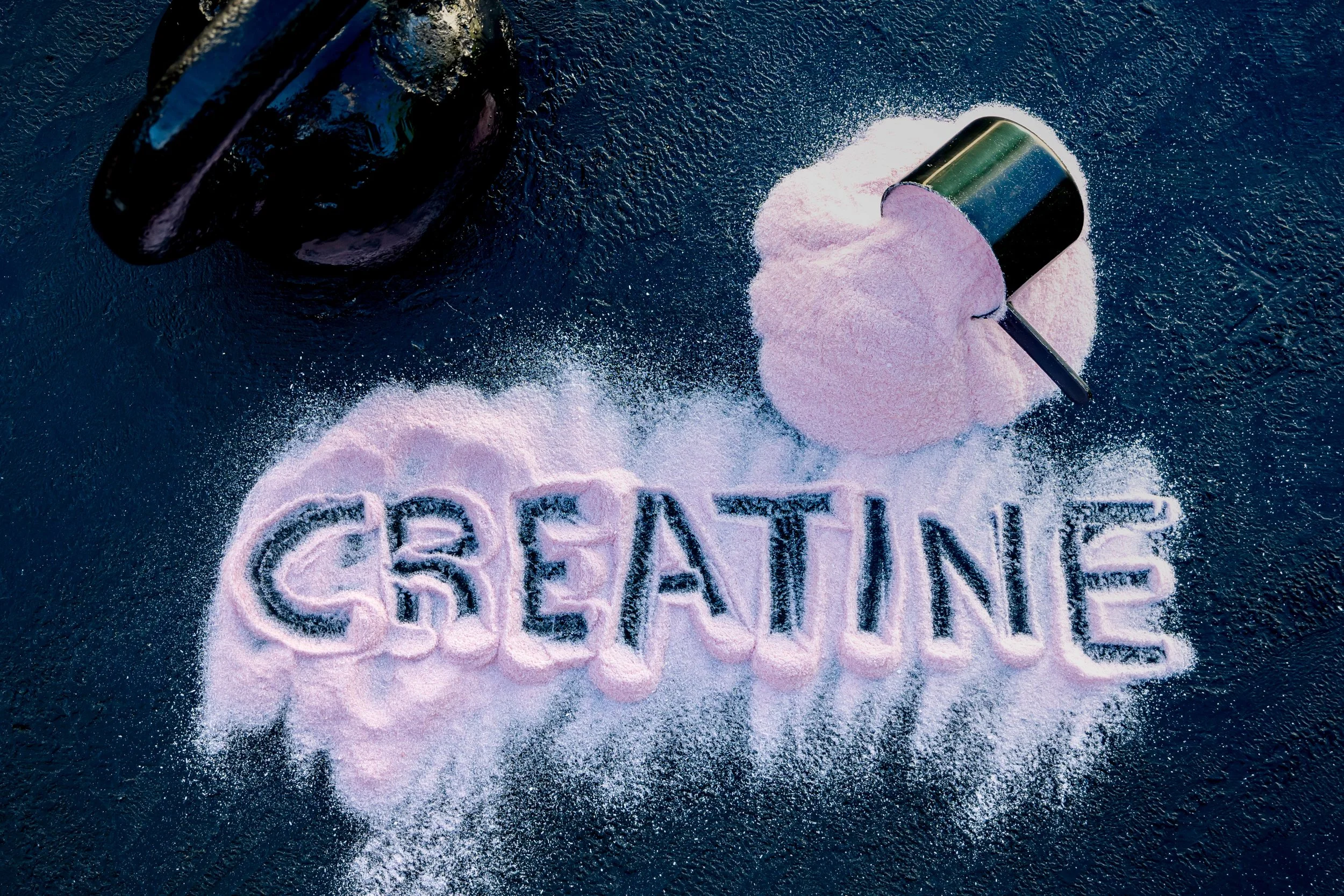What You Really Need to Know About Creatine
My top picks for creatine supplements:
Best basic creatine: BulkSupplements.com Creatine Monohydrate
Best premium creatine: Transparent Labs Creatine HMB
Best creatine gummies: Swoly Creatine Mono Gummies
Best creatine for less bloating: Con-Cret Creatine HCl
Creatine has long been a staple in the fitness world, recognized for enhancing athletic performance and muscle growth. From bodybuilders to elite athletes, many have turned to creatine to boost their training. Let's explore the myriad benefits of creatine, how it works, and why it might be the key to taking your fitness regimen to the next level.
What is Creatine?
Creatine is a naturally occurring compound found in small amounts in certain foods and synthesized by the human body. It primarily resides in the muscles, which are crucial in producing energy during high-intensity activities. Creatine works by replenishing adenosine triphosphate (ATP), the primary energy carrier in cells, allowing for sustained and powerful muscle contractions.
Benefits of Creatine for Fitness
Improved Muscle Strength and Power
One of the most well-documented benefits of creatine is its ability to enhance muscle strength and power. This is particularly beneficial during weightlifting and other resistance training exercises. By supplementing with creatine, you can expect to lift heavier weights and perform more reps, significantly improving overall workout performance.
Increased Muscle Mass
Creatine not only enhances strength but also contributes to muscle hypertrophy (i.e., growth). It promotes water retention within muscle cells, increasing cell volume and creating an environment conducive to muscle growth. Creatine is an invaluable supplement for bodybuilders and those looking to increase lean body mass.
Faster Muscle Recovery
After an intense workout, muscles need time to recover and repair. Creatine helps speed this recovery process by reducing muscle cell damage and inflammation. It allows you to train harder and more frequently without the usual delay caused by muscle soreness and fatigue.
Enhanced High-Intensity Exercise Capacity
Athletes participating in high-intensity sports such as sprinting, weightlifting, and cycling can greatly benefit from creatine supplementation. It boosts one's ability to perform short bursts of explosive activity, enhancing overall exercise capacity. This translates to better performance on the field, track, or gym.
Boosted Brain Health and Cognitive Function
Beyond physical performance, creatine has shown promise in supporting brain health and cognitive function. Studies suggest that creatine supplementation can improve memory and cognitive performance, particularly during mentally demanding tasks.
These effects can be amplified by combining them with other supplements, such as hydroxymethylbutyrate found in Transparent Labs Creatine HMB.
How to Take Creatine
Creatine supplements are available in different forms, such as creatine monohydrate, creatine ethyl ester, and creatine hydrochloride, each offering its own set of benefits. The most researched and recommended form to start with is creatine monohydrate. It is widely available in powder, capsule, and candy forms, such as Swoly Creatine Mono Gummies, making it convenient to add to your current supplement schedule.
The standard dosage involves a "loading phase" of 20 grams per day, divided into four doses for the first 5-7 days, followed by a "maintenance phase" of 3-5 grams daily. (More on that later.)
Creatine Myths Debunked
Myth 1: Creatine Causes Kidney Damage
One of the most persistent myths is that creatine can damage the kidneys. Numerous studies have shown that creatine is safe for healthy individuals when taken at recommended dosages. Still, those with kidney disease or other pre-existing health conditions should avoid creatine or consult with their doctor before starting supplementation. Always ensure you're using a high-quality product from a reputable source.
Myth 2: Creatine Causes Weight Gain
While creatine can increase water weight, this is not the same as fat gain. The weight gained from creatine is due to increased muscle mass and water retention within muscle cells.
"Creatine bloat" is a common side effect, especially during the loading phase, that causes many new gym-goers to abandon the supplement or avoid it altogether. However, you can avoid this by consuming an alternative form, such as Con-Cret Creatine HCl Capsules. Creatine hydrochloride is typically more expensive than monohydrate. Still, it is more soluble and requires minimal water to transport creatine molecules in the body, resulting in less bloating and a smaller dosage than creatine monohydrate.
Myth 3: You Need to Cycle Creatine
Some people think that you have to cycle creatine to keep it effective. However, research shows that using creatine continuously is safe and maintains its effectiveness over time. Nevertheless, I suggest that everyone take a break from creatine for 1-2 weeks before getting any blood tests, as it can affect the results.
Myth 4: You Need a Loading Phase
It is a common belief that one must undergo a high-dose loading phase before transitioning to a lower maintenance phase when using creatine. However, this is not true. While a loading phase can produce quicker results, high doses of creatine can lead to stomach discomfort in some people. Consistently taking a dose of 3-5 grams daily will yield the same results, although it may take longer to notice the effects.
Creatine offers many benefits for fitness enthusiasts, athletes, and bodybuilders alike. It's a powerful tool in any fitness program, from increased strength and muscle mass to faster recovery and enhanced cognitive function. Add creatine to your workout stack and unlock your full potential.
Disclaimer: This post may contain affiliate links. If you make a purchase through them, I may earn a small commission at no additional cost to you. I only recommend products I trust and believe will bring value to you. Thank you for your support.









